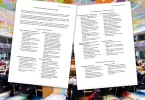This article is the second part of an analysis of the US Department of Transportation’s (DOT) Notice of Proposed Rule Making (NPRM) entitled Transparency of Airline Ancillary Fees and Other Consumer Protection Rules [70 Federal Register 29970 (May 23 2014)]. Our first article [ETN (June 18, 2014)] discussed the DOT’s proposed definition of who and what should be included within its new “statutory definition of ‘ticket agent’” and the 40 year evolution of the duties and responsibilities of the old “ticket agents”, i.e., retail travel agents. In this article we will discuss the DOT’s additional proposals “to require airlines and (newly defined) ticket agents to disclose at all points of sale the fees for certain basic Ancillary services associated with the air transportation consumers are buying…Currently, some consumers may be unable to understand the true cost of travel searching for airfares, due to insufficient information concerning fees for Ancillary services”.
“Unbundling” Is The Problem
The DOT recognized that the unbundling of service fees from the base price is the problem [“Many services or products previously in the price of airline ticket such as checked baggage, advance seat assignments and priority boarding are now sold separately”]. Unbundling is prevalent throughout the hotel [Travel Law § 4.04[6]], airline [Travel Law § 2.03[13]] and rental car industries [see Travel Law: Rental Car Companies Behaving Badly [ETN (April 23, 2014)(in Shames v. Hertz Corporation, 2012 WL 5392159 the Court noted that “In 2006, the passenger rental car industry (RCD) proposed changes to California law which were subsequently enacted…In exchange for this increased funding (payments to California Travel and Tourism Commission (the Commission)) the RCD were allowed to ‘unbundle’ fees charged to customers and itemize such fees separately from the base rental rate. Significantly, the adopted changes allowed the companies to ‘pass on some or all of the assessments to customers’. Plaintiffs allege this led to the imposition of two specific fees on leisure rental car customers…a 2.5% tourism assessment fee was added to the cost of a car rental which, in turn, helped fund the Commission. Plaintiffs allege that the Commission then colluded with RCDs fixing rental car prices by passing on the 2.5% tourism assessment fee to customers. Second, the RCDs ‘unbundled’ the already-existing airport concession fee charged to customers to pay airports for the right to conduct business on airport premises…9% of the rental price…renters (allege they) paid a higher total price for the rental of a car at California airports than they would have otherwise”)].
Consumer Antipathy To Unbundled Fees
It is clear that consumers are not happy with the unbundling of service fees even though travel suppliers continue to push for even more [see e.g., Litvan, Transparent Airfares? Anything But, Consumer Groups Say, www.bloomberg.com/news (April 21, 2014)(“House Transportation and Infrastructure Committee unanimously approved a bill April 9 that would allow carriers to resume their former practice of most prominently featuring base fares rather than total prices. Taxes, baggage fees and other costs that can make up a substantial portion of what consumers pay can be displayed through links or pop-ups”)].
The 2011 Final Rule Not Enough
On April 25, 2011 [76 Federal Register 23110] the DOT issued a Final Rule for Enhancing Airline Passenger Protections which imposed various disclosure requirements on both carriers and travel agents via the new 14 Code of Federal Regulations 399.85 including requiring “carriers but not ticket agents to disclose on their homepage for three months any change to their baggage fees. Additionally, under 14 CFR 399.85(d), carriers must provide a listing of all optional service fees on one Web page…While the (DOT) considered the disclosure requirements in its 2011 final rule to be a step in the right direction, these requirements do not fully address the problem of lack of transparency of ancillary services and products. Consumers who book transportation through a ticket agent still do not receive accurate and real-time information about fees for ancillary services and products and are unable to determine the total cost of travel. Consumers also can’t use the list of optional services and fees that airlines post on their Web sites to determine the cost of travel since airlines generally provide a range of fees for ancillary services aside from baggage and acknowledge that the fees vary based on a number of factors such as the type of aircraft used, the flight on which a passenger is booked or the time at which a passengers pays for the service or product. Further, the list of optional services and fees that the airlines post on their Web sites are static lists…With respect to baggage, the existing disclosure requirements mandate specific information, but passengers must still review lengthy and complex charts to determine the exact fee that they would be charged for their baggage”.
Disclosure Of Hidden And Deceptive Fees
“The (DOT) remains of the view that as carriers continue to unbundle services that used to be included in the price of air transportation, passengers need to be protected from hidden and deceptive fees and allowed to price shop for air transportation in an effective manner…The (DOT) believes that regulation is needed to address the lack of transparency regarding the true cost of air transportation and is proposing to require that fees for certain ancillary services be disclosed to consumers through all sale channels. The (DOT) seeks input on this proposal as well as any innovative solutions that we may not have considered”.
Two Proposed Solutions For Comment
The DOT proposes two possible solutions to increase transparency. “One proposal is to require each carrier to distribute certain ancillary service fee information to ticket agents (including GDSs (Global Distribution Systems)) that the carrier permits to distribute its fare, schedule and availability information…the (DOT)…would require carrier to provide ‘usable, current and accurate’ information on fees for certain ancillary services to all ticket agents so this information can be disclosed to consumers at all points of sale. Each airline would continue to determine where and how its ancillary services may be purchased…The second proposal is similar to the first in all ways except one…the second would omit the requirements that the information on ancillary fees be distributed to GDSs… since GDSs… would not be subject to any direct consumer notification requirements. Instead, the second alterative would require carriers to distribute certain ancillary service fee information to all ticket agents that the carrier permits to distribute its fare, schedule and availability information if the ticket agent sells the carrier’s tickets directly to consumers…the second proposal would not require carriers to provide ancillary fee information to entities such as meta-search tools like Kayak and Google”.
Revealing The Basics
The (DOT) “believes that failing to disclose basic ancillary service fees in an accurate and op-to-date manner before a consumer purchases air transportation would be an unfair and deceptive trade practice (however) not all ancillary service fee information needs to be available through all channels. However, there are certain basic services that are intrinsic to air transportation… and the cost of those services is a factor that weighs heavily into the decision-making process for many consumers. We consider these basic ancillary services to consist of the first and second checked bag, one carry-on item and advance seat selection. This rulemaking would require U.S. and foreign air carriers to distribute to ticket agents the fees for these basic ancillary services”.
Conclusion
The final rule for this NPRM is many months away and may reflect new and innovative solutions to the issue of transparency of ancillary service fees. Stay tuned.
The author, Justice Dickerson, been writing about Travel Law for 38 years including his annually-updated law books, Travel Law, Law Journal Press (2014), and Litigating International Torts in U.S. Courts, Thomson Reuters WestLaw (2014), and over 300 legal articles many of which are available at www.nycourts.gov/courts/9jd/taxcertatd.shtml .
This article may not be reproduced without the permission of Thomas A. Dickerson.






















